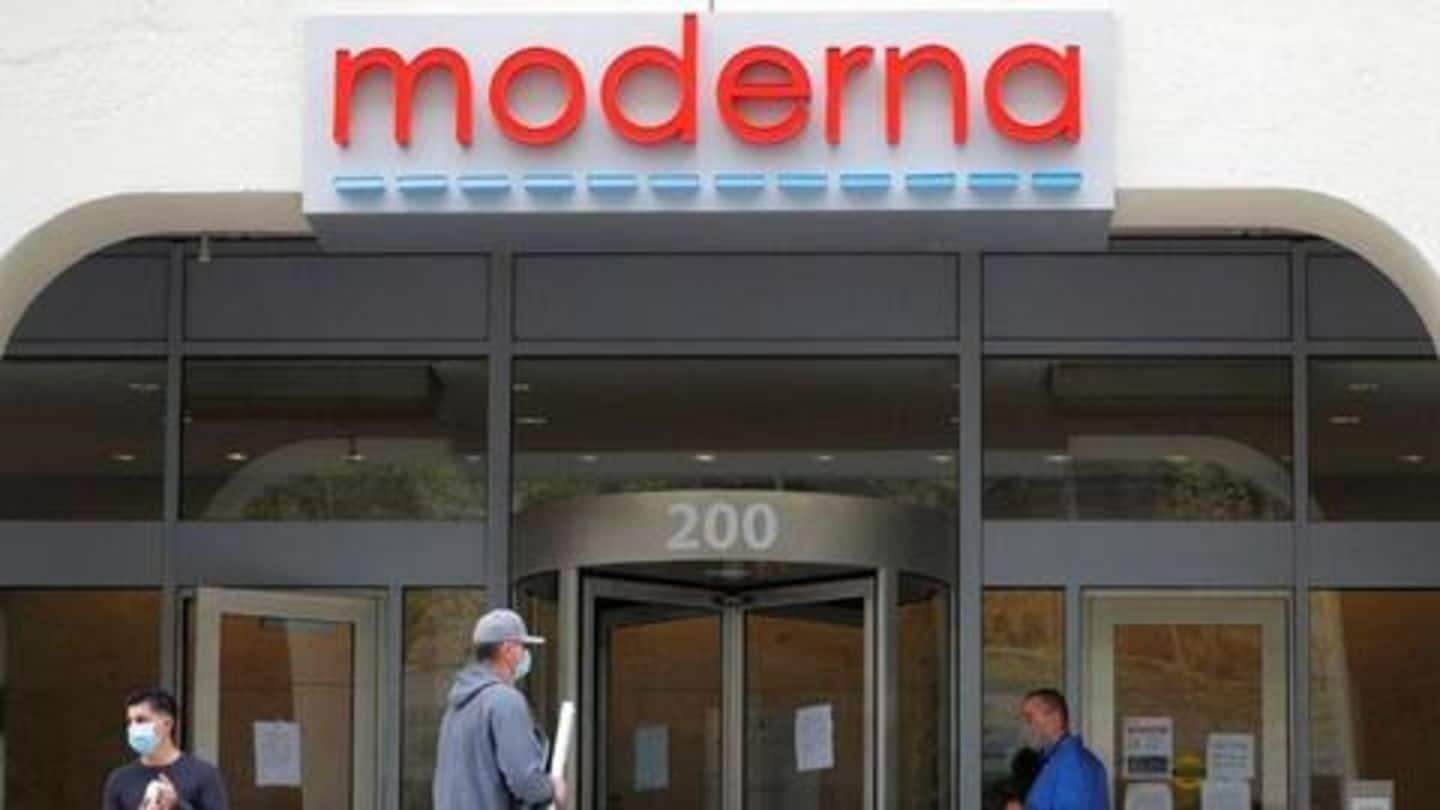
Moderna's COVID-19 vaccine: When will it be available?
What's the story
In the race to develop a vaccine for COVID-19, Moderna Therapeutics is seen as one of the fastest-moving players. The biotech company has developed a vaccine candidate and is quickly moving through the trial phase, giving a ray of hope to the whole world. But, the question is, can their formula generate an immune response, and when will it be available? Let's find out.
Vaccine
Moderna's genetic code-based mRNA-1273 vaccine
Moderna's scientists, working in partnership with the US National Institute of Allergy and Infectious Diseases, have developed a vaccine called mRNA-1273. The injection carries a segment of genetic code copied from the virus's spike protein, the appendage it uses to enter cells and replicate. It is different from conventional vaccines that use a weakened/killed strain of the virus they are designed to fight off.
Working
So, how does it work?
When the vaccine is injected, the genetic code of the spike protein goes into the body. As this happens, the body learns to recognize the coronavirus and generates antibodies, proteins secreted by immune cells called B lymphocytes, required to fight it off. This way, when the active version of the virus attacks, the immune system is already primed to act against it.
Work
Effectiveness and safety is currently being judged
The vaccine has passed the development/exploratory phase and is confirmed to be working in lab tests and models. But, to judge its efficacy and safety for widespread public use, scientists are carrying out trials in the US. The testing phase includes four main stages: pre-clinical animal trials, and Phase 1, 2, and 3 of clinical human trials.
Pre-clinical result
So far, the results have been promising
In the pre-clinical trials, carried out simultaneously with Phase-1 clinical trials, mRNA-1273 was tested on mice and was able to generate enough antibodies to fight off the novel coronavirus and prevent it from replicating. Interestingly, the level of antibodies noted in these animal tests was also found to be consistent with the levels generated from the vaccine in humans, during Phase-1 trials.
Phase-1
Results from Phase-1 human trials
In Phase-1 clinical trials, which started on March 16, the experimental vaccine was given in three separate doses - 25 micrograms, 100 micrograms, and 250 micrograms - to 45 people (each dose for 15) at a gap of 28 days. The early results of these tests revealed that the vaccine produced detectable antibodies in all the volunteers, with a dose-dependent increment in immunogenicity.
Antibodies
Antibody levels similar to those seen in recovered patients
Moderna said that the participants who got the 25 micrograms shot generated antibodies at levels seen in the blood of recovered COVID-19 patients, while the 100 micrograms group had antibodies that "significantly exceeded levels" seen in recovered cases. Also, the vaccine was able to produce neutralizing antibodies in at least eight of the participants (four each from 25 and 100 micrograms group).
Phase-2
Phase-2 of human trials are currently in progress
With the promising results from pre-clinical and Phase-1 of clinical trials, Moderna has been cleared for Phase-2 of clinical human trials, which started just last week. In these tests, the vaccine will be tested on 600 adults and the immune response - the antibodies - generated in their bodies will be assessed to determine the effectiveness and safety of the vaccine.
Phase-3
Then, Phase-3 and approval process would follow
Once Phase-2's results are available, which are expected by July, the vaccine candidate would go into the final phase, which will be a randomized placebo-controlled test involving 30,000 individuals from around the world. This phase will be aimed at generating as much data as possible on the efficacy and safety of the vaccine and lining it up for FDA approval by early 2021.
Availability
Availability in early-2021 possible
If all goes according to the plan, the mRNA-1273 vaccine could become available for emergency use in the first half of 2021. Moderna has already partnered with Swiss drugmaker Lonza to set up manufacturing and is hoping to start production as early as July to have millions of doses ready for distribution by the time Phase-3 trials end and the vaccine is approved.